Understanding the Critical Role of Routine and Monitoring in Alzheimer’s Management
Alzheimer’s disease presents ongoing challenges for individuals and caregivers alike, making structured routines and diligent health monitoring essential components of effective care. These strategies are more than simple daily schedules; they are vital lifelines that promote safety, independence, emotional stability, and overall quality of life. This article explores how routine health checks and well-planned daily activities serve as powerful tools to manage symptoms, detect health issues early, and support the dignity and well-being of those affected by Alzheimer’s.
The Fundamental Importance of Routine Health Monitoring in Alzheimer’s Care
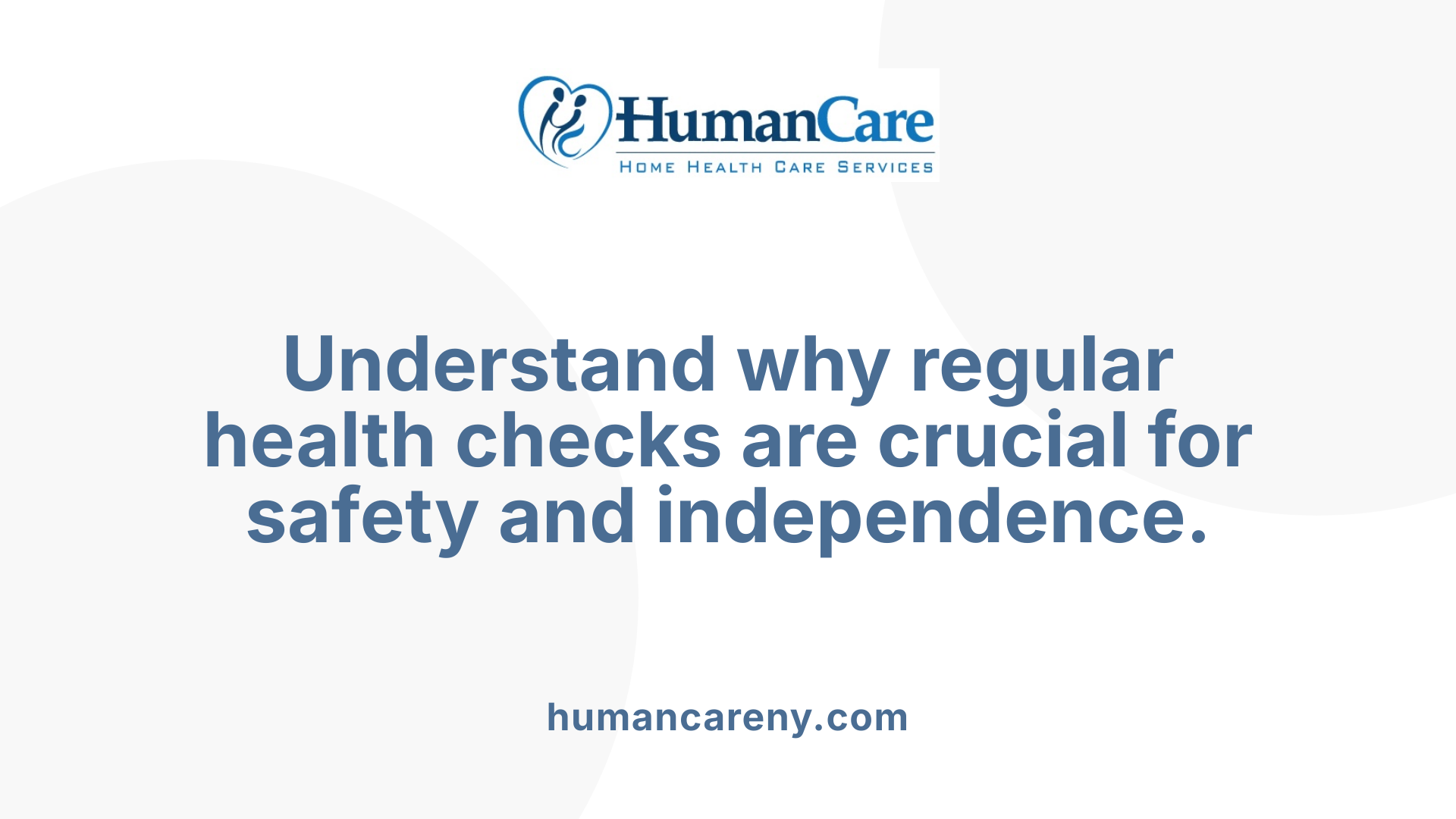
What is the importance of routine health monitoring in Alzheimer’s care?
Routine health monitoring is a vital aspect of caring for individuals with Alzheimer’s disease. It helps identify and address various health issues early, which can significantly improve their overall well-being and safety. Regular check-ups enable caregivers and healthcare professionals to detect conditions that often accompany dementia, such as cardiovascular problems, vision and hearing impairments, depression, osteoporosis, and even cancer.
Early detection through routine screenings can prevent complications and reduce the risk of hospitalizations or emergencies. For example, monitoring heart health can prevent stroke or heart attack, while regular vision and hearing assessments ensure sensory impairments are managed, helping individuals stay connected and safe.
Routine health evaluations also facilitate early diagnosis of other age-related diseases, including cancer. This early intervention allows for timely treatment and adjustments to care plans, supporting the person’s independence as much as possible.
Caregivers play a crucial role in coordinating these health assessments. They advocate for the individual, schedule appointments, and help them understand the purpose and importance of each screening. This active participation increases adherence and ensures that health issues are managed proactively.
Maintaining physical health through these routines not only improves quality of life but also promotes emotional stability and confidence. When health issues are caught early, it becomes easier to manage symptoms, prevent deterioration, and sustain daily functioning.
Overall, consistent health monitoring in Alzheimer’s care is essential. It supports safe living environments, prolongs independence, and enhances emotional and physical well-being.
| Aspect | What Is Monitored | Benefits |
|---|---|---|
| Cardiovascular health | Blood pressure, heart rate, cholesterol levels | Prevents strokes and heart attacks, supports mobility |
| Vision and hearing | Sight and auditory function | Maintains communication, safety, and orientation |
| Depression and mood | Emotional state, mood assessments | Promotes mental health, reduces loneliness |
| Bone health | Bone density, signs of osteoporosis | Prevents fractures, supports mobility |
| Cancer screenings | Cancer markers and routine exams | Early detection and treatment |
Regular health screenings are an ongoing necessity. They form a foundation for personalized care strategies that adapt to the changing needs of individuals as Alzheimer’s progresses. This proactive approach ensures safety, promotes independence, and nurtures emotional well-being, making a significant difference in the lives of those affected.
Benefits of Structured Routines for People with Alzheimer’s Disease
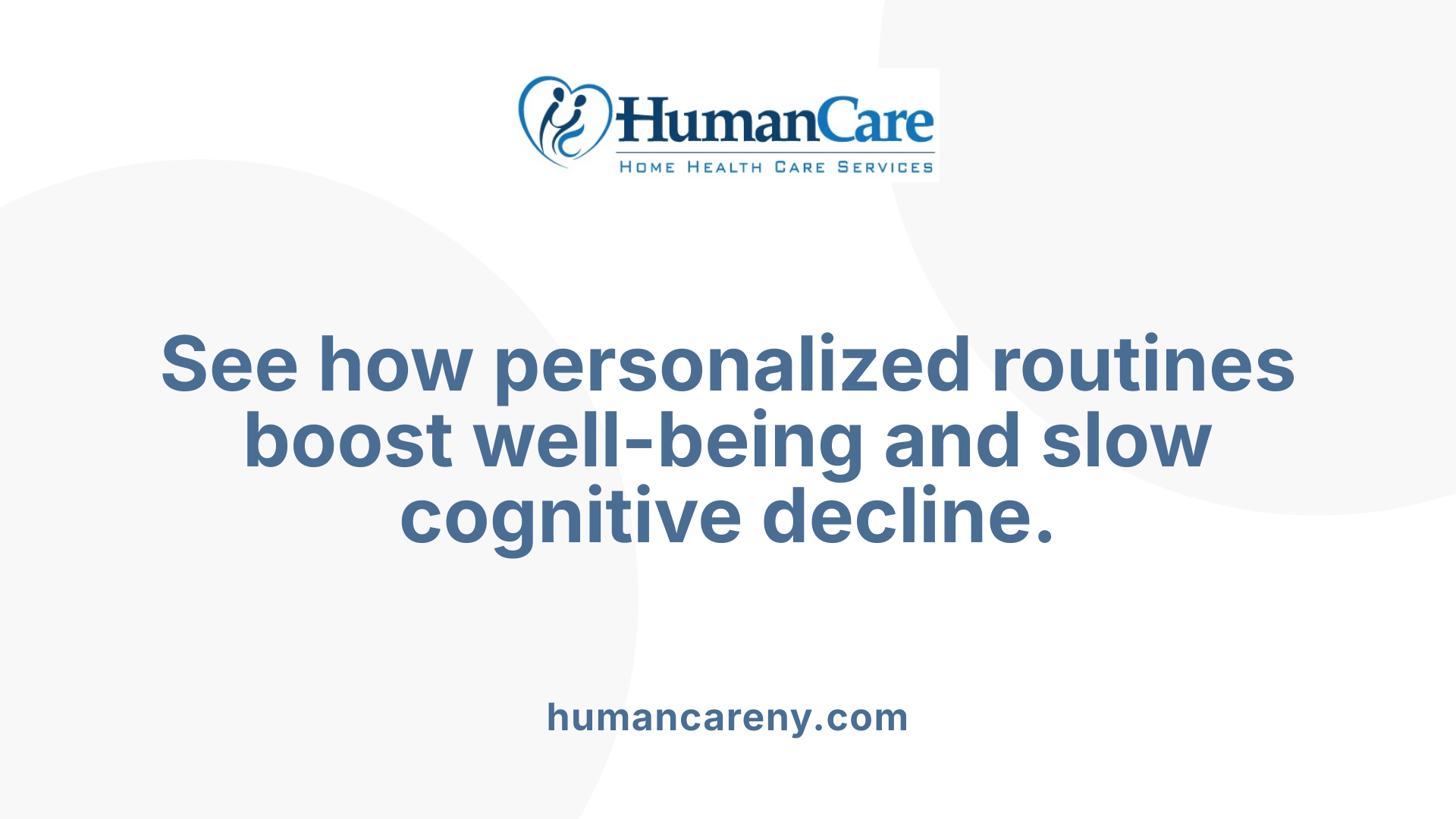
How can maintaining structured routines benefit individuals with Alzheimer’s disease?
Establishing consistent daily routines offers many advantages for those coping with Alzheimer’s. These routines provide predictability and familiarity, which are crucial in reducing confusion and anxiety. When individuals know what to expect, they tend to feel more secure, which helps diminish feelings of agitation or restlessness.
Familiar activities such as bathing, dressing, and mealtimes not only support emotional comfort but also reinforce memory pathways. Over time, they can help maintain a person’s ability to perform daily tasks, fostering independence and dignity. This sense of control and participation builds self-esteem, especially in early stages.
Behavioral symptoms like aggression, wandering, or resistiveness often decrease when routines are in place. Structured days help manage these behaviors by creating an environment of stability. Engaging in activities that are meaningful and tailored to individual interests stimulates cognitive functions and emotional connections.
Furthermore, incorporating social, physical, and creative activities within routines can greatly enhance emotional stability. These activities promote a sense of purpose, reduce feelings of loneliness, and contribute to overall well-being. As dementia progresses, well-maintained routines can adapt to evolving needs, supporting functional skills and emotional health.
In sum, routines serve as a foundation for a supportive environment that sustains quality of life, encourages social engagement, and helps slow cognitive decline. Caregivers, by personalizing and consistently upholding routines, can significantly improve daily life for individuals with Alzheimer’s.
Strategies and Tools for Implementing Effective Routines and Health Checks
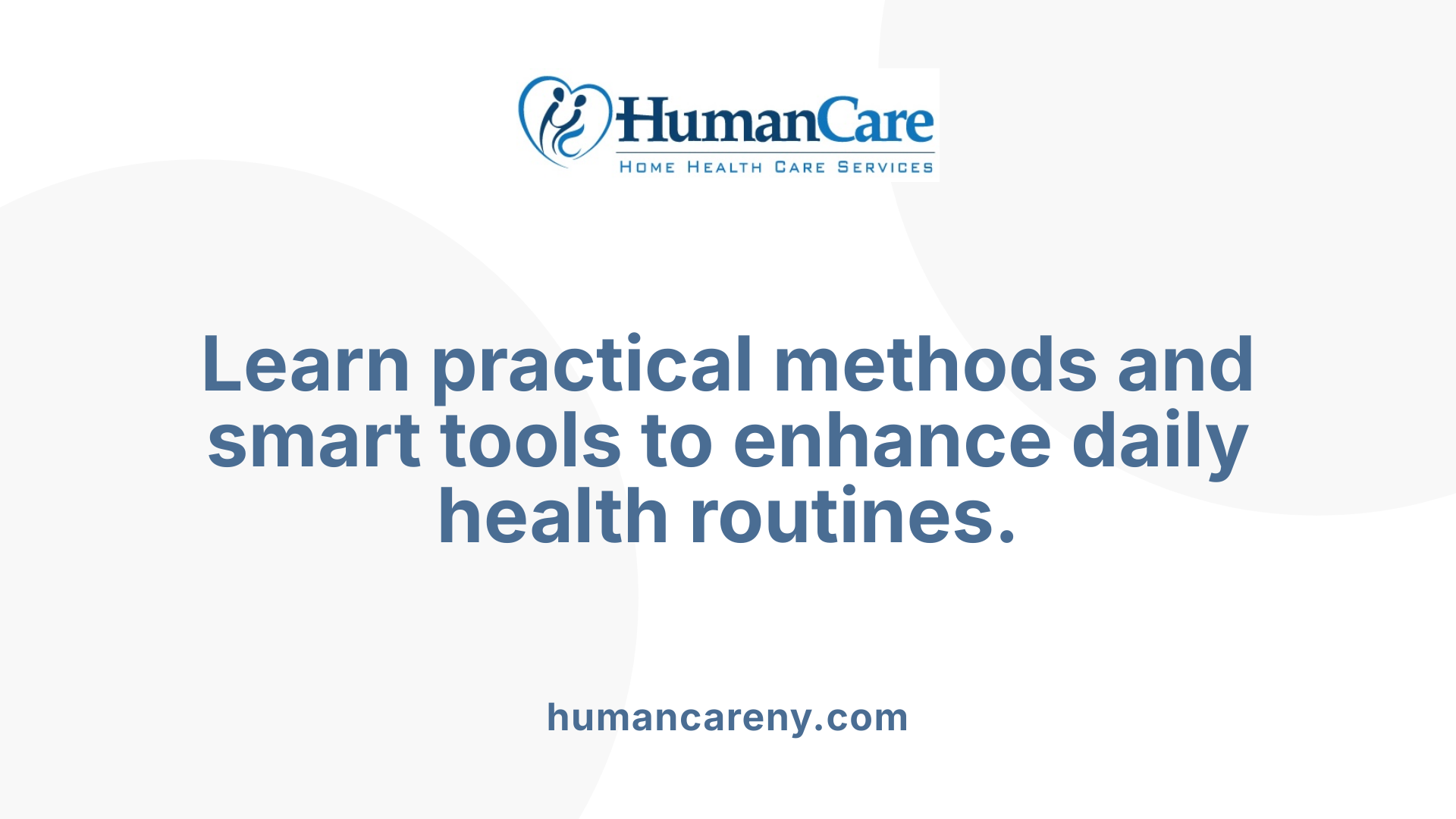
What are effective strategies and tools for implementing routines and health checks in Alzheimer's care?
Implementing routines in Alzheimer’s care involves establishing structured, predictable daily schedules that are tailored to each individual’s abilities and preferences. These routines help reduce confusion, agitation, and anxiety, thereby fostering a sense of security and independence. For example, maintaining consistent times for waking, meals, bathing, dressing, and bedtime provides familiarity that supports cognitive functioning.
Utilizing visual cues, reminders, and checklists can significantly aid persons with dementia. Visual aids such as pictures, color coding, or simple written notes serve as prompts for completing daily activities, especially in early stages. These cues help individuals navigate their environment and carry out tasks like taking medication or dressing without feeling overwhelmed.
Balancing activity and rest is crucial. Incorporate engaging cognitive, social, and physical activities that match the person’s current abilities. At the same time, allow sufficient rest periods to prevent fatigue. As the disease advances, routines should evolve, emphasizing encouraging participation rather than taking over tasks. Breaking activities into smaller steps and using simple instructions or gestures can foster a sense of achievement and maintain dignity.
Environmental safety modifications are essential, especially in later stages. Caregivers should adapt environments to prevent falls and accidental injuries—using grab bars, removing hazards, and ensuring good lighting. Supervision remains critical to monitor safety while supporting independence.
Involving caregivers, whether family members or health professionals, alongside technology, enhances routine effectiveness. Devices such as remote monitoring systems—including wearables, environmental sensors, and smart home technologies—help track health parameters, detect falls, wandering, or sleep disturbances, and provide real-time alerts. These tools ensure safety while respecting patient dignity, especially when integrated with electronic health records for seamless care coordination.
Regular health checks and ongoing evaluations by healthcare providers support early detection of emerging issues. These include medication adherence, managing side effects, and monitoring disease progression. Personalized care plans developed and adjusted by professionals ensure that routines remain aligned with changing needs, promoting both safety and quality of life.
Overall, combining personalized routines, visual aids, safety modifications, caregiver involvement, and appropriate technology offers an effective approach to managing Alzheimer’s symptoms and supporting ongoing health monitoring.
Impact of Structured Routines on Behavioral and Psychological Symptoms
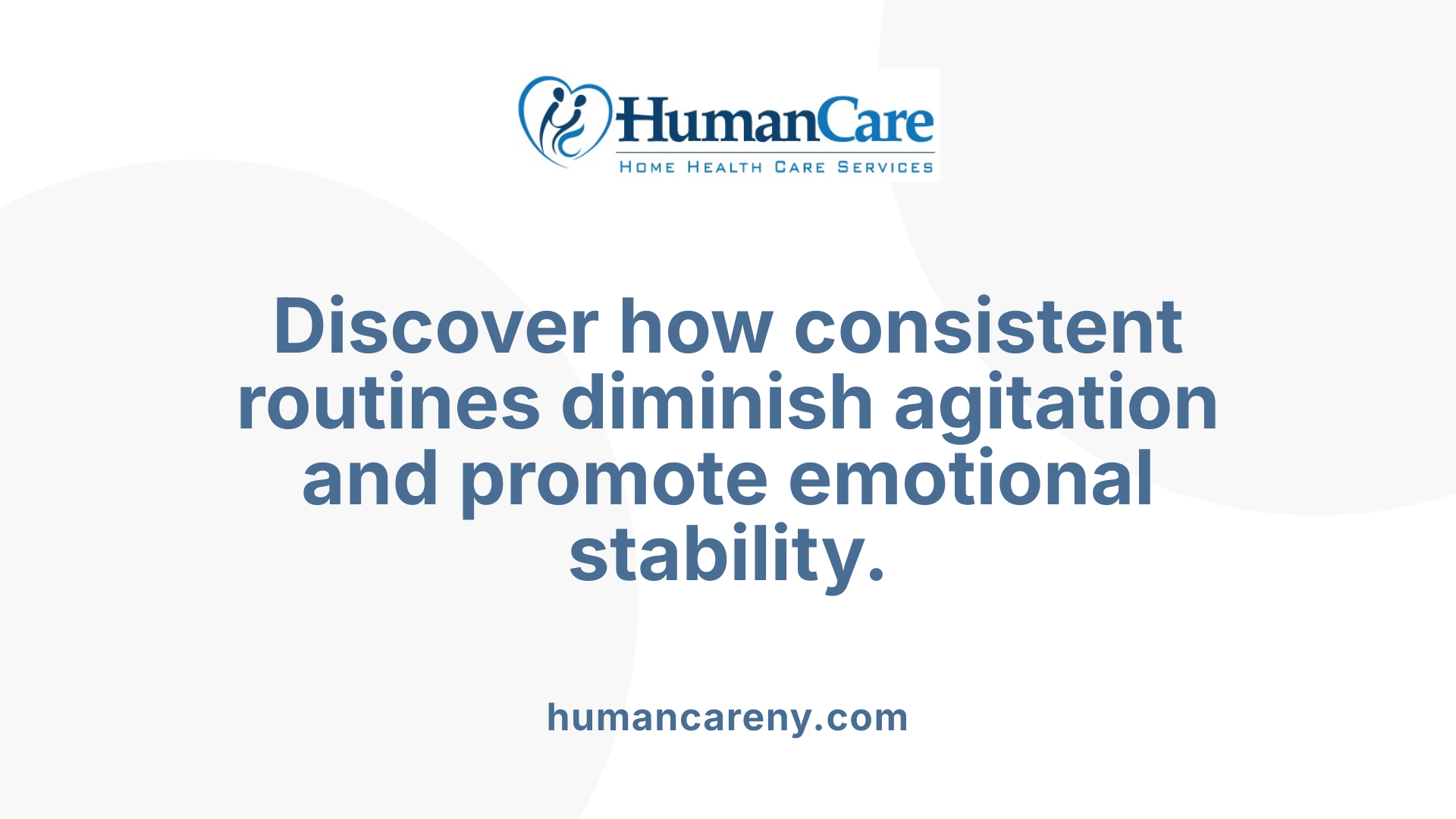
How do structured routines influence behavioral and psychological symptoms in Alzheimer’s patients?
Structured routines play a vital role in managing behavioral and psychological symptoms of Alzheimer’s disease by creating a predictable daily environment. When routines are consistent and familiar, they help reduce feelings of uncertainty and confusion, which are common triggers for agitation and anxiety.
Creating stability through a set schedule helps individuals with dementia feel safe and secure. Activities like waking up, eating, bathing, and going to bed at the same times each day support their internal clock, helping regulate sleep patterns and reduce issues such as sundowning.
Familiar activities—like hobbies, social interactions, or simple chores—foster feelings of competence and independence. This sense of control lessens behaviors like wandering, pacing, or aggression that stem from stress or restlessness.
Environmental cues and reminders, such as visual signs or consistent cues like sunlight in the morning, help reinforce routines and lessen confusion. As routines are rooted in familiarity, they can also transfer into long-term memory, providing moments of recognition even as the disease progresses.
Moreover, maintaining routines minimizes overstimulation, helping to stabilize mood and emotions. This approach helps reduce the frequency and severity of undesirable behaviors, improving overall well-being.
In summary, a predictable routine environment is a non-drug strategy that supports emotional stability, reduces challenging behaviors, and enhances quality of life for individuals with Alzheimer’s.
The Role of Technologies in Supporting Routine Health Monitoring
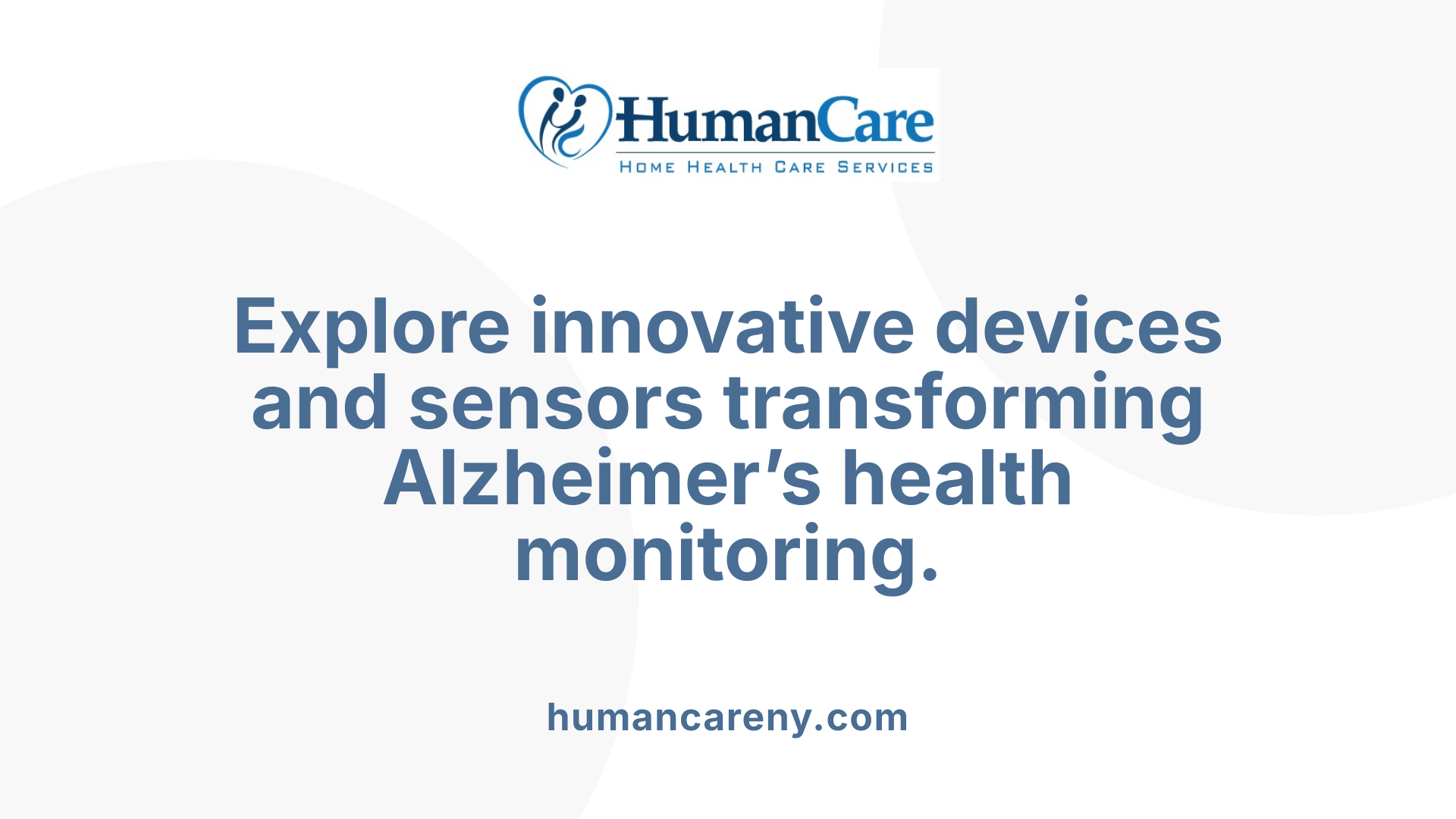
What role do health monitoring technologies play in supporting individuals with Alzheimer’s?
Technologies for health monitoring are transforming Alzheimer’s care by offering continuous oversight of patients’ well-being and safety. These tools include remote monitoring systems, wearable devices, sensors, and advanced smart home technology. They are designed to gather real-time health data, helping detect early signs of cognitive decline and other health issues.
Wearables and sensors can track vital signs such as heart rate, blood pressure, and oxygen levels. They also monitor sleep patterns, mobility, and behavioral changes, providing a comprehensive picture of a person’s health status. Smart home devices facilitate safe environments by alerting caregivers to unusual activities, falls, or wandering episodes.
Early detection capabilities are critical. Digital assessments, cognitive tests, and biomarker analysis integrated into these technologies enable timely interventions. They help determine shifts in mental and physical health that might require medical attention.
Support for independence and safety is enhanced through GPS-enabled devices and emergency response systems, which improve mobility and security. These tools empower individuals to retain their autonomy longer while ensuring caregivers are promptly notified of any issues.
Moreover, integrating remote monitoring with healthcare systems allows seamless data sharing with medical professionals. This coordination supports personalized treatment adjustments and encourages proactive health management.
In summary, health monitoring technologies play a vital role in improving the quality of life for those with Alzheimer’s by enabling early detection, ensuring safety, maintaining independence, and fostering better communication within the healthcare network.
Supporting Alzheimer’s Patients and Caregivers through Consistent Routines and Monitoring
In sum, establishing structured routines and incorporating advanced health monitoring technologies are vital strategies in managing Alzheimer’s disease. These approaches not only help detect health issues early but also foster independence, reduce behavioral challenges, and enhance emotional well-being. As Alzheimer’s progresses, adaptable routines paired with continuous, nonintrusive monitoring ensure that patients receive personalized, effective care while maintaining their dignity. Caregivers and healthcare providers must collaborate to develop flexible, patient-centered routines supported by technological innovations, ultimately improving the quality of life for those living with Alzheimer’s and providing peace of mind for families.
References
- The Important of Routine and Familiarity to Persons with Dementia
- The Importance of Routine and Structure in Alzheimer's Care
- Daily Care Plan | Alzheimer's Association
- Setting routines and reminders | Alzheimer Society of Canada
- Daily time management in dementia: qualitative interviews with ...
- The Importance of Regular Check-Ins for People with Alzheimer's ...
- The Importance Of Routine Senior Home Care For Alzheimer's ...
- Advancing Remote Monitoring for Patients With Alzheimer Disease ...



